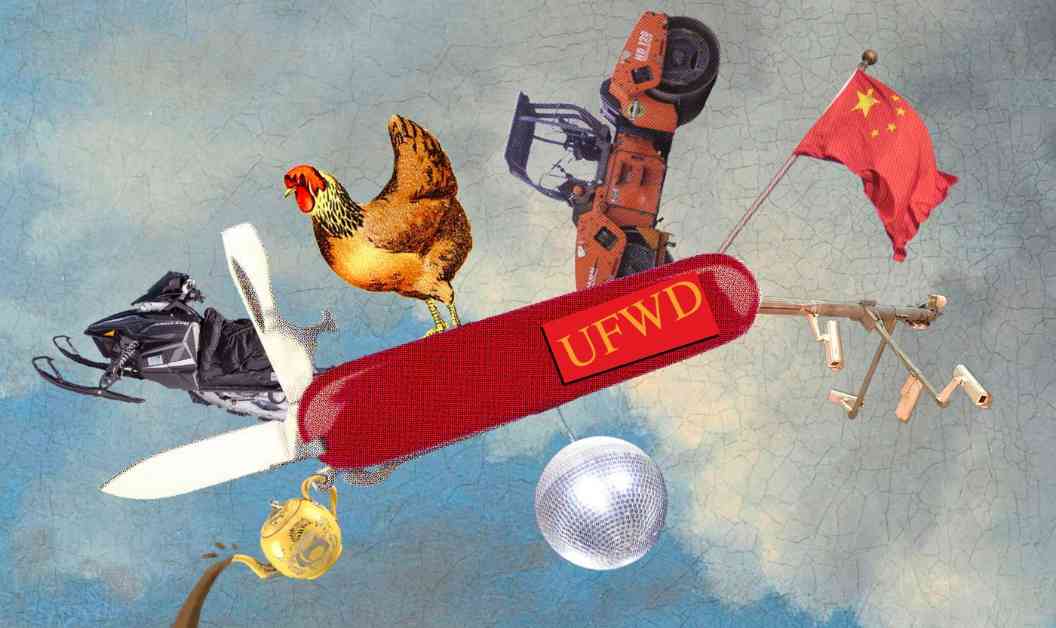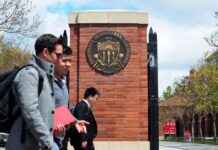Mastering the Art of Persuasion: How to Hold Sway and Influence Others
Swirling around in brightly-colored inflatables the shape of flying saucers, riders grin as they skid across the ice, bouncing off one another in a winter version of bumper cars. Nearby, more people pedal “ice bikes” and row sleds that look like dragon boats. Others steer snowmobiles along a go-cart-style track. Children glide along in “princess horse-drawn carts” pulled by diminutive steeds.
This winter amusement park, located in China’s far northeast, about 100 miles from Vladivostok, offers a unique experience for visitors courtesy of the local United Front Work Department (UFWD). In most parts of the world, the UFWD is known as a secretive Chinese Communist Party (CCP) organ conducting influence operations abroad. However, in Gonghe Village, the local UFWD invested nearly one million renminbi in 2022 to purchase “snow sports equipment” for the recreation area, including sleds, safety nets, and anti-slip mats. The village head expressed their commitment to developing the ice and snow industry as a crucial opportunity for the village’s economic growth.
While the United Front Work Department has gained notoriety for its activities abroad, its mission is primarily focused on domestic affairs within China. Researchers emphasize that the Department’s operations extend beyond the country’s borders, highlighting its influence both domestically and internationally. By analyzing procurement notices and related materials on the Chinese Government Procurement Network website, it becomes evident that the UFWD’s reach encompasses various sectors of society, aiming to align individuals and groups with the Party’s interests.
The UFWD’s efforts extend to diverse sectors, including members of non-CCP political parties, participants in the non-public economy, the new social strata, ethnic minorities, religious believers, people from Hong Kong, Macau, and Taiwan, intellectuals, and overseas Chinese communities. Each bureau within the Department focuses on engaging and influencing specific target groups to ensure their alignment with the Party’s goals.
To enhance its outreach and recruitment efforts, the UFWD is incorporating technological advancements, such as smart platforms and big data analytics, to identify and engage potential members effectively. By leveraging technology to streamline its operations, the Department aims to strengthen its influence over targeted individuals and groups, further solidifying their loyalty to the Party.
In addition to outreach and recruitment, the UFWD also engages in projects aimed at providing basic goods and services to target groups. Infrastructure development, road improvements, and initiatives to promote economic activities are among the projects undertaken by the Department to address the needs of specific communities. These efforts not only serve to improve living conditions but also contribute to the Party’s overarching goal of assimilating diverse identities into a unified Chinese identity.
Despite its focus on soft power tactics, the UFWD’s influence can also manifest through more intrusive measures, particularly when targeting individuals deemed potentially threatening to the Party’s interests. Surveillance, monitoring of religious sites, and efforts to control the behavior and mindset of religious figures are among the strategies employed by the Department to maintain control over sensitive groups, such as ethnic and religious minorities.
The UFWD’s activities in regions like Xinjiang and Tibet highlight the extent to which the Department seeks to exert control over communities that pose perceived threats to the Party’s authority. By implementing surveillance programs, renovating religious structures, and influencing religious practices, the UFWD aims to ensure compliance with the Party’s directives and promote loyalty to the state.
While the UFWD’s tactics may appear subtle compared to overtly violent methods, the Department’s efforts are integral to the Party’s governance strategy. By shaping social life, influencing diverse sectors of society, and promoting a unified Chinese identity, the UFWD plays a crucial role in maintaining the Party’s control and preventing dissent or opposition.
As the UFWD continues to expand its reach and influence, it underscores the Party’s commitment to consolidating power and shaping societal norms. By engaging in a wide range of activities, from infrastructure development to cultural assimilation, the Department seeks to create a society aligned with the Party’s interests, devoid of dissent or opposition.
In conclusion, the United Front Work Department’s multifaceted approach to persuasion and influence reflects the Party’s broader strategy of maintaining control and shaping societal norms. By engaging with diverse sectors of society, implementing surveillance measures, and promoting assimilationist policies, the UFWD plays a pivotal role in advancing the Party’s agenda and ensuring loyalty to the state. As the Department continues to evolve and expand its operations, its impact on Chinese society remains profound and far-reaching.

















